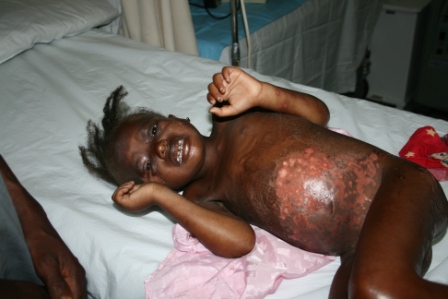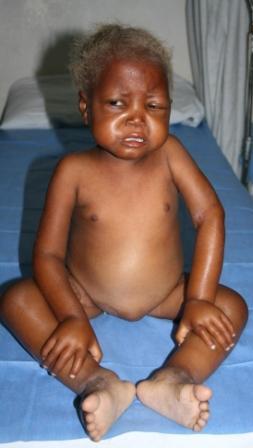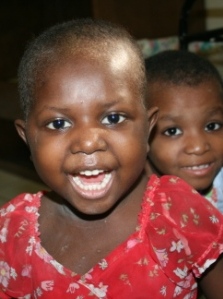What is kwashiorkor?
Kwashiorkor is a type of malnutrition that is rare in the United States; it is most common in areas of drought and famine. Kwashiorkor is due to inadequate protein in the diet despite an adequate caloric intake. Symptoms may include irritability and fatigue followed by slowed growth, weight loss, muscle wasting, generalized swelling, skin changes, enlargement of the liver and abdomen, and weakening of the immune system, leading to frequent infections. Once kwashiorkor develops, some of the effects, such as short stature and intellectual disability, cannot be corrected.
Kwashiorkor can be prevented by including foods in your diet that are rich in proteins, such as meat, fish, dairy products, eggs, soy, and beans. Treatment involves slow increases in calories from carbohydrates, sugars, and fats, followed by protein. Vitamin and mineral supplements and enzymes to help digest dairy products are often needed. Treatment also involves correction of any fluid and electrolyte imbalances and treatment of any infections.
What are the symptoms of kwashiorkor?
Early symptoms of kwashiorkor include irritability and fatigue. As the condition continues, additional symptoms include slowed growth, weight loss, muscle wasting, generalized swelling, skin changes, enlargement of the liver and abdomen, and weakening of the immune system, leading to frequent infections.
Common symptoms of kwashiorkor
Kwashiorkor symptoms may develop slowly over time. Common symptoms include:
- Abdominal swelling, distension or bloating
- Diarrhea
- Enlarged liver
- Fatigue
- Frequent infections
- Generalized swelling
- Hair and nail changes, including brittle, reddish hair and ridged nails that are thin and soft
- Irritability
- Muscle wasting
- Skin changes, including pigment loss, red or purple patches, peeling, cracking, skin sloughing, and the development of sores
- Slowed growth leading to short stature
- Weight loss
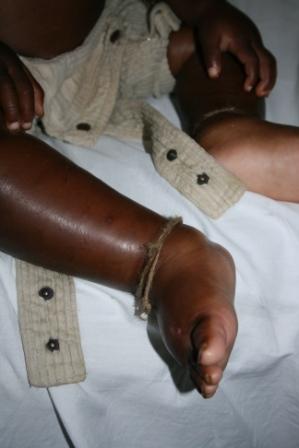
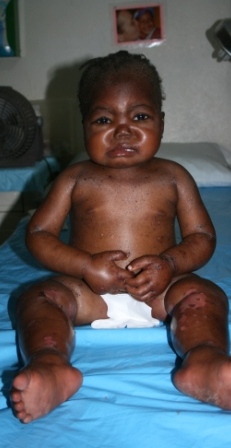
-
How is kwashiorkor treated?
Treatment of kwashiorkor depends upon its severity. Fluid and electrolyte imbalances may need to be corrected with intravenous fluids, and infections may require treatment with antibiotics.
Although the goal is to increase protein in the diet, rapid increases in calories and protein can be dangerous. Often, the calories are slowly increased by adding carbohydrates, sugars, and fat to the diet. Next, protein is gradually added. People who have malnutrition may have difficulty digesting the lactose in dairy products, so the enzyme lactase may be added. Vitamin and mineral supplements may also be used.
Common treatments for kwashiorkor include:
- Antibiotics to treat infections
- Gradual increases in dietary calories from carbohydrates, sugars and fats
- Gradual increases in dietary protein
- Intravenous fluids to correct fluid and electrolyte imbalances
- Lactase to assist in digestion of dairy products
- Vitamin and mineral supplements to treat deficiencies
What are the potential complications of kwashiorkor?
- In some people, especially infants and children, complications of untreated or poorly controlled kwashiorkor can be serious, even life threatening in some cases. You can help minimize your risk of serious complications by following the treatment plan you and your health care professional design specifically for you. Complications of kwashiorkor include:
- Anemia (low red blood cell count)
- Coma
- Frequent infections
- Intellectual disability
- Physical disability
- Poor wound healing
- Shock
- Short stature
- Skin pigmentation changes
- Steatohepatitis (fatty liver)



